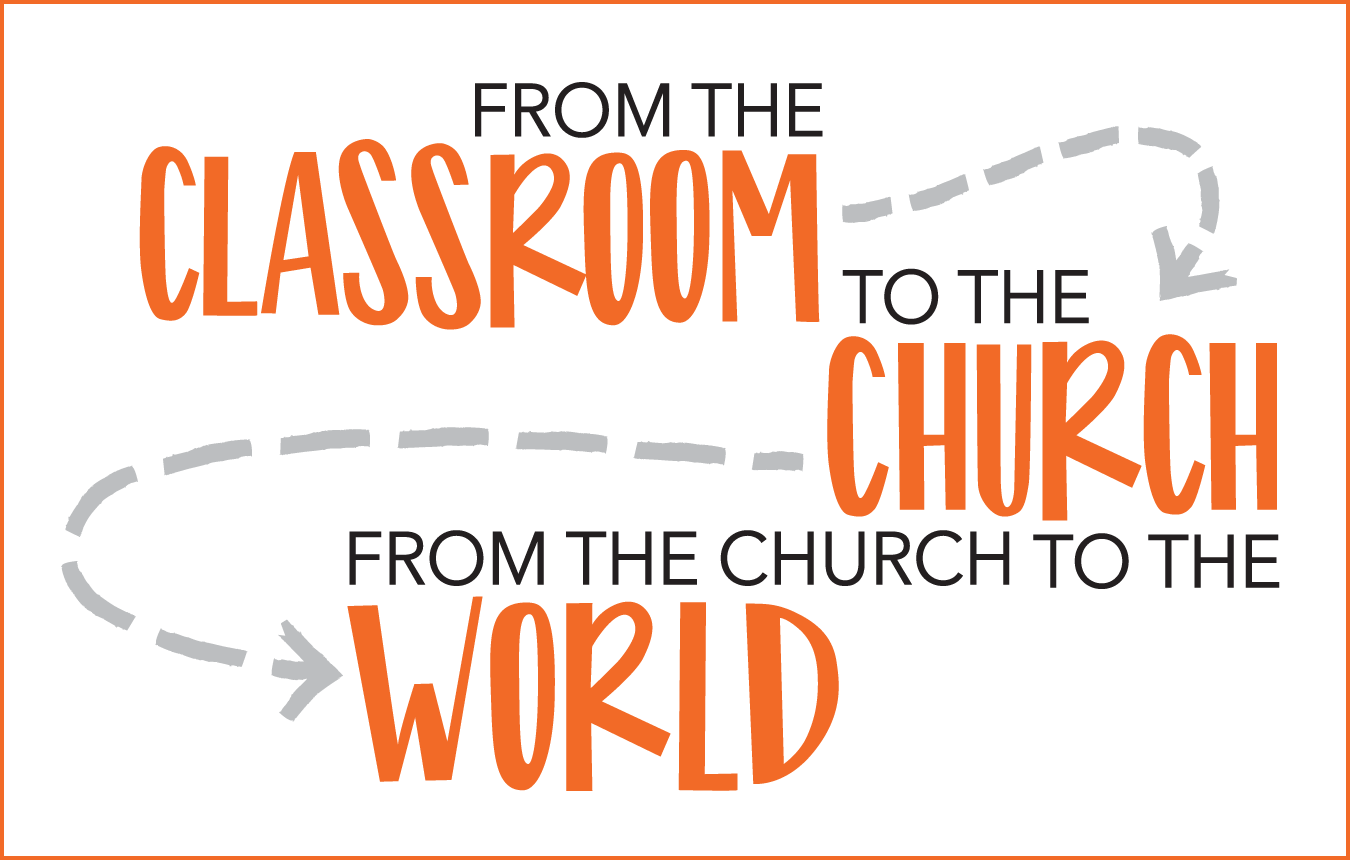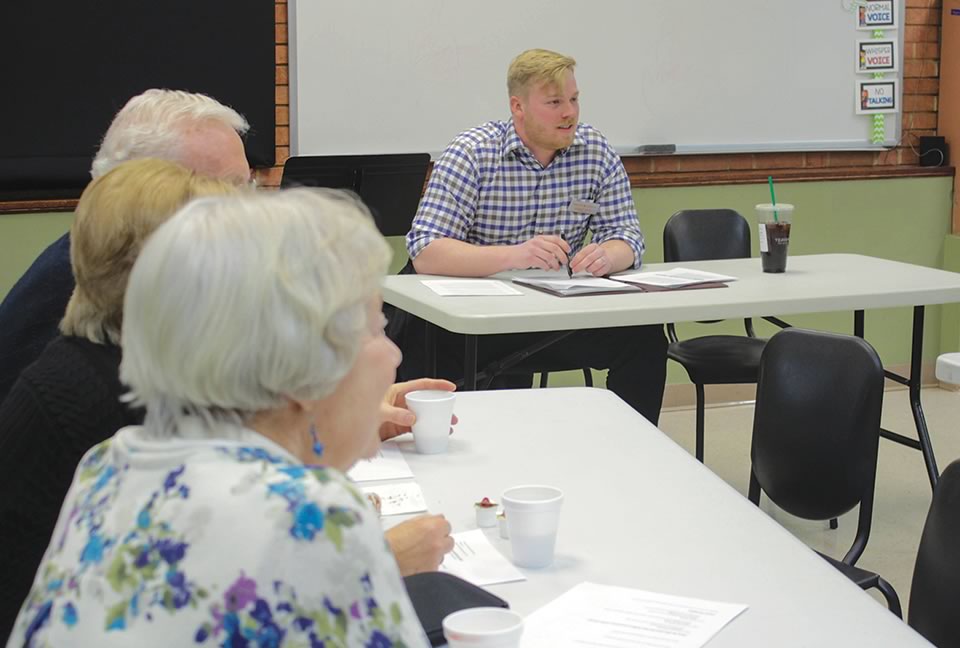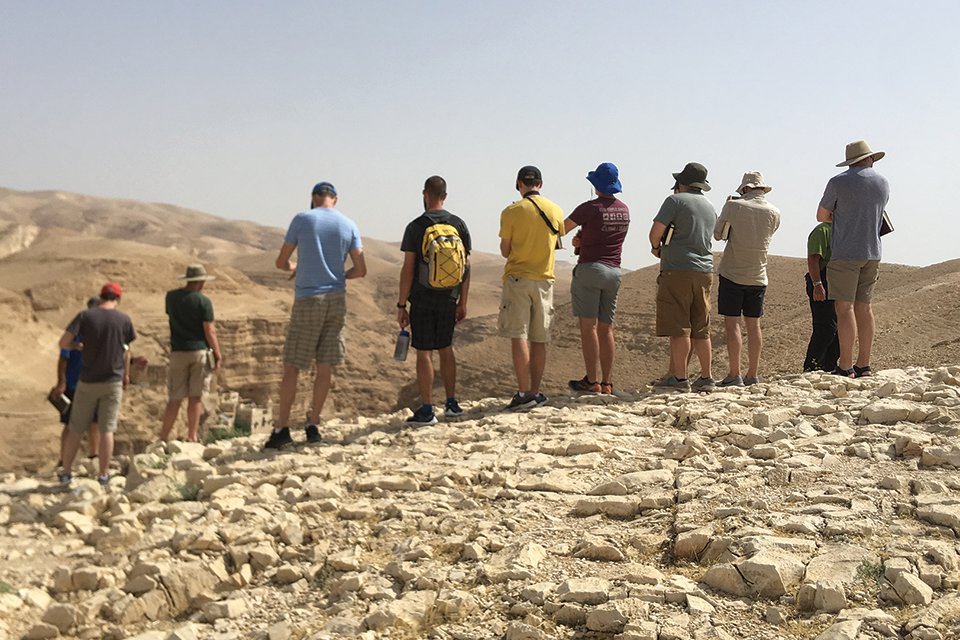
Concordia Seminary Newsroom
From the Classroom to the Church

When you visit your medical doctor, you assume that he or she has spent many hours over many years studying medicine in classrooms. But you also expect that he or she has had countless medical experiences in hospitals and other medical settings, learning to apply what they learn in the classes to effectively practice medicine. The same is true of pastors and deaconesses who go through the formation process at Concordia Seminary.
When students attend the Seminary, they take many classes in theology and pastoral formation. They learn to read and interpret Scripture from the original Greek and Hebrew texts. They learn to discern how Luther and other Lutherans, as well as other early Christians, have boldly confessed this biblical faith in Jesus. They also take classes on how to preach the Word, teach the Scriptures, lead faithful worship, provide pastoral care for God’s people individually and in small groups, and lead God’s people to do the good works He has prepared in advance for them to do. But Seminary formation goes beyond the nearly 40 classes offered in the Master of Divinity (M.Div.) and other residential programs. Let’s look at a few of the experiences students have beyond the classroom.

Worship and devotional services are held in the Chapel of St. Timothy and St. Titus on campus Monday through Friday. This stunning sanctuary offers another hands-on experience for students. Here they receive the blessings of God’s Word and Sacraments while learning to lead our church’s fine liturgy, develop powerful preaching abilities and leverage our wonderful heritage of beautiful hymnody. Most chapel services are 20-25 minutes in length, while the Lord’s Supper is celebrated each Wednesday with a longer service.
Additional services for corporate confession and individual absolution also are part of the regular schedule. While most of the preaching and presiding is done by faculty, students are encouraged to volunteer to lead the liturgy and preach for chapel post-vicarage. In addition, visiting pastors and other Synod leaders also are invited to preach or lead music. On Sundays, Seminary students worship at the various Resident Field Education (RFE) congregations around the St. Louis area.

When students arrive in St. Louis, they don’t just visit a few congregations and decide where they want to worship on Sundays. They are assigned to a field work congregation. The Seminary’s director of Resident Field Education (RFE) gathers individualized information about each student and carefully places them with a congregation specially selected to meet their formation needs. Students are expected to spend about 10 hours per week serving in that congregation, under the guidance of that congregation’s pastor, who is their RFE supervisor.
Most students stay connected with that congregation for their first two years, and then for one semester after vicarage. This congregation will be the first place they ever assist in leading a congregation in liturgical worship. This is often where they preach their first sermon. Over those two-and-a-half years, students develop personal relationships with God’s people in a new congregation (as they will on vicarage and in their first call), receive feedback from church leaders, and observe how this congregation conducts Bible studies, small groups, confirmation classes and voters meetings. Students may also make hospital visits and shut-in calls. They also talk about their field work experiences with other students who are in congregations of different sizes and practices.

Seminarian Quincy Koll leads a four-week “Seminary Bible Study” at The Lutheran Church of Webster Gardens, Webster Groves, Mo. Photo: Courtney Koll
In addition to their congregational RFE, seminarians also have two other experiences during their first year: an Institutional Module and a Cross-Cultural Module. For their Institutional Module, students garner 40 hours of chaplain-like experience in a local hospital, Lutheran Senior Services or the St. Louis County Justice Center. In the latter, students participate alongside a chaplain in a Bible study with incarcerated persons.
During the Cross-Cultural Module, students engage with one of several churches or LCMS-based agencies, including various multiethnic parishes. Students can also opt to take a basic American Sign Language course for future work with people who are deaf, work with immigrants and refugees through Christian Friends of New Americans, or work with inner-city youth. Some students opt to do an intensive immersion trip.
Some students serve at camps or other LCMS agencies. Onestudent served as a chaplain with the National Parks system. Still others go on short-term missions trips or build their chaplaincy skills through Clinical Pastoral Education programs.

The vicarage or deaconess internship is a yearlong experience in which the student observes and participates in a full range of ministerial skills and practices. Concordia Seminary (along with our sister seminary in Fort Wayne, Ind.) is one of the only seminaries in the United States that still expects students to have both RFE experiences and a full-year vicarage or internship. Nearly all other seminaries opt to do one of the other, but not both. We value hands-on learning during the ministerial formation process.
Most M.Div. seminarians do their vicarage during their third year of studies, then return to St. Louis for their concluding year of studies. During their concluding year, students discuss their vicarage experiences with professors and fellow students. They share their discoveries about their strengths and flaws. Some students meet with me as the director of the M.Div./Residential Alternate Route (RAR) programs and develop a personalized plan to help strengthen the weaknesses identified over vicarage.
A few students do their vicarage after completing all their coursework before being placed in a congregation where they will likely receive a call at the end of the vicarage. (This is called a convertible vicarage.) Students in the RAR Program and a few M.Div. students with similar levels of age and experience (over 35 with 10 years of experience in the church as a Director of Christian Education [DCE] or elder) are eligible to request a convertible vicarage experience.
By the time a residential student finishes his M.Div. Program, he typically has over 3,000 hours of vicarage and RFE experience supervised by pastors and chaplains who are “in the trenches” doing genuine pastoral work.

Students who enroll in “Exegesis and Teaching from the Biblical Context: An Immersion Experience” have the awesome opportunity to study in Israel. This two-week elective course generally offered in the spring is taught by Dr. Tom Zelt, senior pastor at Prince of Peace Lutheran Church in Fremont, Calif., and an adjunct faculty member who has studied in Israel and led trips there about 30 times. Students see first-hand where Jesus was born and taught, and they experience the landmarks of His suffering, death and Resurrection. Students also visit the cities and regions dwelt in by Abraham, Moses, Joshua, Samson, David, Elijah, Herod and Paul. The course was first offered five years ago and to date, nearly 100 students have been able to visit Jerusalem, Bethlehem, the Sea of Galilee and the Dead Sea.

Students on an immersive trip to Israel “dig deep” into matters of faith. Photo courtesy of Jeremiah Jording
Before arriving onsite, students spend hours studying biblical history and maps of ancient Israel, then write lesson plans on how they would teach Bible studies about the places and episodes they visit. They study vigorously, walking and climbing through many chapels, shrines and archaeological digs. I was blessed to go on the first trip in 2014. Our Israeli tour guide was so excited because he realized he was going to smash the national tour guide record of 18 historical sites visited in one tour; we explored 25 different sites!
Just as patients expect their medical doctors to have hit the books hard and to have learned how to apply that book knowledge to real-life physical healing, parishioners hope that their future pastors have hit the books hard and learned how to apply that book knowledge to real-life Gospel proclamation. Future pastors have many such hands-on experiences while at Concordia Seminary.
Dr. Richard Marrs is an associate professor of Practical Theology and the Director of the Master of Divinity and Residential Alternate Route programs at Concordia Seminary, St. Louis.
CAPTIONS:
Seminarian Quincy Koll leads a four-week “Seminary Bible Study” at The Lutheran Church of Webster Gardens, Webster Groves, Mo. Photo: Courtney Koll
Students on an immersive trip to Israel “dig deep” into matters of faith. Photo courtesy of Jeremiah Jording